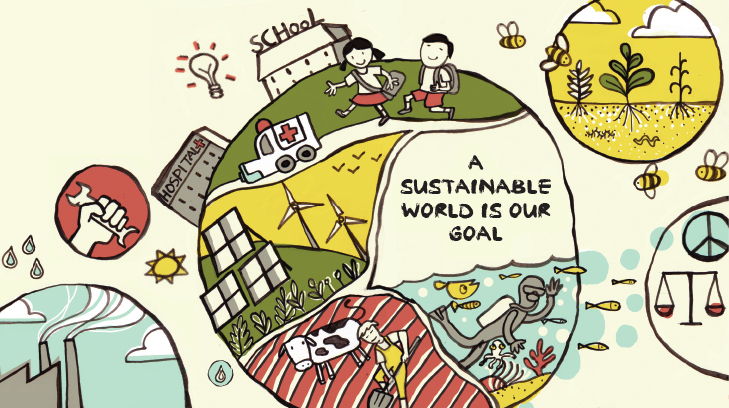Time for the age of ‘postdevelopment’

Development is a failed project, says Julia Schöneberg, and she should know. Dr Schöneberg’s research at the University of Kassel focusses on postdevelopment in practice, social movements and resistances, as well as decolonised approaches to knowledge production and pedagogy.
Anyway, her piece in Open Democracy opens with a provocative quote from Aime Césaire’s essay titled ‘Discourse on Colonialism’. It dismisses the so-called march of “progress” and focusses instead on “societies drained of their essence, cultures trampled underfoot, institutions undermined, lands confiscated, religions smashed, magnificent artistic creations destroyed, extraordinary possibilities wiped out.”
Dr Schöneberg goes on to declare that “to understand the problems with current ‘development’ discourse and practice there is no alternative other than situating ‘development’ as a construct that has resulted from colonialism and that continues to perpetuate itself within this legacy”. This is what has led to “extractivism, fetishism of economic growth, the global division of labour and the marginalisation of non-Western worldviews, cosmovisions, imaginaries,” she writes.
“‘Development’ has become what Gustavo Esteva calls an ‘amoeba’ term – one lacking any real meaning,” Dr Schöneberg laments. But all the definitions of ‘development’, which Dr Schöneberg insists should be in inverted commas, “rest on an intrinsic dichotomy of the ‘West’ and the ‘Rest’, the developed and the underdeveloped”. She says: “There is in inherent assumption that there are those in possession of the solutions and those that need to be helped. That ‘development’ can be directed by intervention. As is clear in the formulation of the UN Sustainable Development Goals, economic growth remains central in any definition, despite obvious contradictions with ecology.”
Instead of ‘development’, there could be postdevelopment, she writes. It fundamentally “questions core features of the prevalent ‘development’ discourse”. And it offers “alternatives to the Western homogenizing model and the dominance of a framing of development-as-progress, especially within solely economic terms”. It also creates a “counter-term that involves a multiplicity of systemic critiques and suggests different ways of living”.
‘Postdevelopment’ would include the cosmovisions or worldviews that “have been easily dismissed as backward or underdeveloped, simply because they fail to measure up to the yardstick of Eurocentric modernity.”
Most significantly of all, Dr Schöneberg says: “With postdevelopment as a ‘tool’, we are not asking HOW can we make development better, but: ‘WHY, through what historical processes, and with what consequences did Asia, Africa and Latin America come to be ‘invented’ as the ‘Third World’ through discourses and practices of ‘development’ (Escobar 1992)?”
To my mind, the “why” of postdevelopment is the question to answer. Everything else flows from that.

